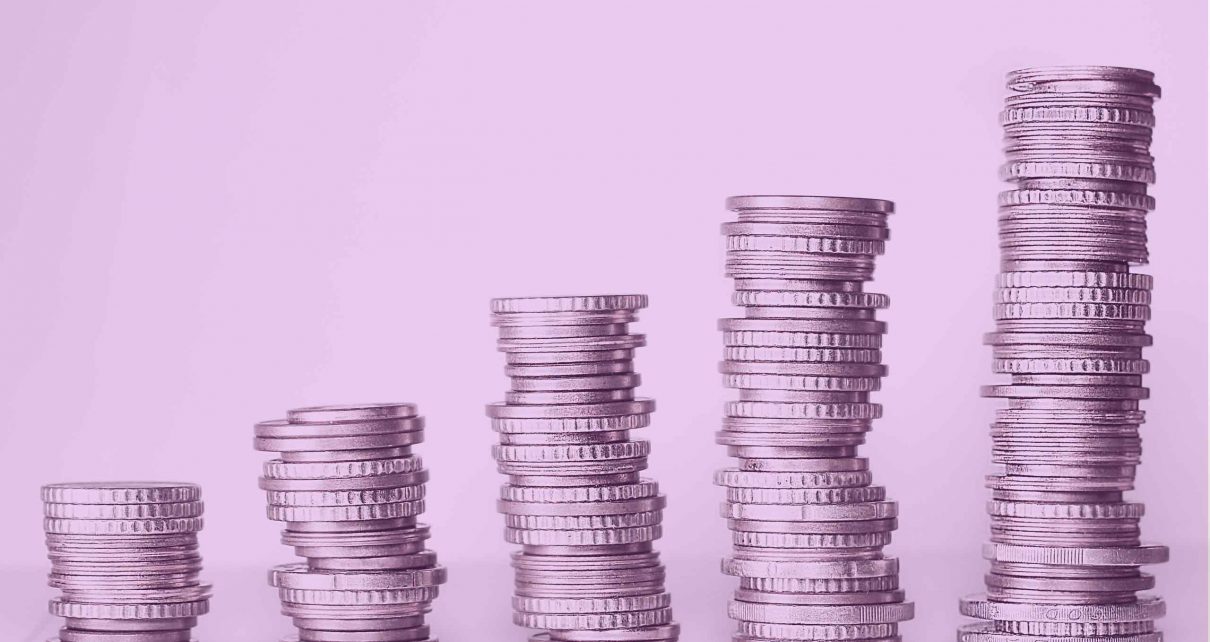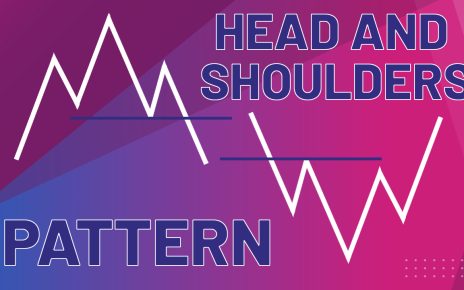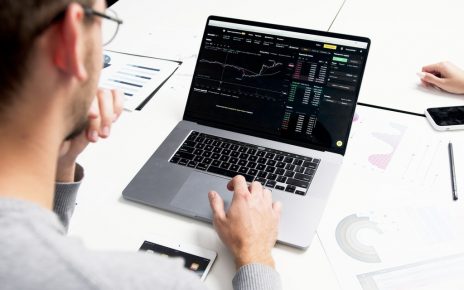Futures trading is becoming more and more popular every day among traders that are hungry for profits but at a reduced level of risk. The world of finance is a turbulent one. Trends come and go, how we deal with money changes, but what remains the same is the affiliation people have towards accumulating money.
It’s natural – money directly translates into capability, and while it’s not the most crucial thing in life, it’s better to cry in a Ferrari than on a bike.
One of the more exciting things that are sweeping the world of finance and investment is futures trading. Futures seem to be a buzzword at this point, and anywhere you turn in the global finance realm, you’re bound to come across them. But, what are futures exactly? What’s the point, what do they do and how do they even work?
Well, in this article, we’ll answer all of those questions and more. If you’re looking to learn about futures contracts and futures trading, we’ll help you out. Just pay attention to the information provided below, and you’ll discover all you need to know about futures, futures trading, and how you can get a slice of that.
Finally, let’s explore what options traders have before starting trading futures. Is it expensive? What if I don’t have enough money? How can I become a funded trader?
What are Futures?
Futures are a part of a Futures Market. They’re known as future contracts. These future contracts are standardized legal agreements that ensure the purchase or sale of a given asset once it reaches a predetermined price point in a stated amount of time.
Traders use futures for locking in prices, ensuring a fixed amount no matter how the market performs. It can be a double-edged sword if a mistake is made, so futures contracts are generally made by financial professionals who can assess the future price based on probability, data, and fluctuation.
These are exchange-traded derivatives contracts traded on futures markets and are used by all industries, from agriculture to manufacturing, to mandate potential profits.
In layman’s terms, futures are contracts that allow you to sell something at a specific price, regardless of its worth by that point.
Futures, unlike stocks, have expiration dates. Once the contract expires, the clearinghouse will match a long contract holder and a short contract holder. The long position holder must put the entire value into the clearinghouse to take the final asset’s delivery.
Once it expires, the futures contract will be handled according to predetermined margins and already established settlement parameters.
How do they work?

Futures might sound a little complicated and a little intimidating, but that’s what they are. Worry not, as they’re not too complicated, and getting the hang of them isn’t a matter of how, but of when.
Below, we’ll outline how futures work in a non-intimidating and straightforward manner. Of course, the process is a bit more intricate, but these are just the basics you need to know to get you started. Starting small and reaching for the stars is the right way to go when futures.
We’ve already covered the fact that futures are contracts and that they’re traded on a futures market, but what we haven’t covered precisely affects their price. The price of futures contracts is substantiated by something known as ticks. Ticks are the expression of the minimum fluctuations in the overall cost.
The value of ticks is known as increments, and they can vary widely between the type of commodity that’s being traded, which means an increment in the Dow Jones and a tick in the S&P 500 will be drastically different.
Futures aren’t just commodities!
You might get the idea that futures are just another commodity that’s traded daily – but you’d be very wrong. For starters, futures aren’t even commodities at all – they’re contracts. They do bind commodities and behave similarly.
Both commodities and futures contracts are traded, but the way they’re traded is different, and more importantly, the market is different as well.
Commodities are assets – futures represent assets. Futures exist for other things as well, such as stocks, indexes, and even currencies. While physical goods define commodities, futures are legal contracts that layout future trades.
Are all futures contracts the same?

Yes and no. What binds all futures contracts together is that they’re legal contracts that arrange the trade of goods, commodities, and assets. What differentiates futures is what they’re contracting.
Another thing that makes futures vary is increments. We’ve mentioned the Dow Jones Average and the S&P 500, but the same philosophy applies to all things that future contracts are applied to. Increments and ticks are going to vary, and this variation can sometimes be quite substantial.
Before you trade futures in a particular market, make sure you’ve done your research on that specific market. Some of the most popular markets for futures trading are:
- E-Mini S&P 500 (ES)
- 10-Year Treasury Note (ZN)
- Eurodollar (GE)
- EuroFx (6E)
- Crude Oil WTI (CL)
The benefits of a Funded Trader Futures program
One of the best ways to get in on the exciting world of futures is to become a Funded Futures Trader. For this, you’ll want to get into a Funded Trader Futures Program. There are more than a couple of benefits to working with the best alternative in funded traders futures program on the market, some of the most notable of which are:
- Quick, simple, and streamlined evaluation;
- A vast range of account sizes;
- Daily trading reports;
- Numerous funding networks and sources;
- Top-of-the-line visual analytics and statistics;
These are just the creme de la creme – as when you’re working with a top of the line funded trader futures program, almost all of your trading needs will be as automated as possible, meaning you can devote more time to making accurate predictions.
The features should also be catered to your unique needs, simple to comprehend and master, and as transparent as possible. Transparency will ensure that you’re always aware of what you’re doing with your futures contracts and all the essential financial data is easy to access.
Aside from the features, a top-tier program will work for you, not the other way around, meaning that you will get to keep most of your profits without any significant risk.
The average cost of a Funded Trader Futures program
The costs of a funded trader futures program are only as high as you want them to be. A good program will have all of your needs accounted for, allowing you to pick between different packages substantiated by account sizes.
Aside from the amount of money at your disposal, you’ll get abscess to different features and capabilities. The lower end options will allow you to trade a set amount of contracts and will award you with a certain sum of money to start, but if you’re shooting for a better deal, up is always the way to go.
Depending on your program of choice, the fees and costs are going to be different. Higher-end accounts will usually have more favorable profit splits, but they will require more significant returns and commitment for the split. The split can also be curved by paying more or less per month. The more you pay to the program monthly, the better the end-of-month profit split.
The type of account will also be more expensive monthly but more worth your money if you know what you’re doing because they have better resets, more favorable daily loss limits, and a selection of other features.
Generally, considering the amount of money you have at your disposal when working with a futures trading funded trader program, it’s far more affordable than you expect, making it an ideal option for day traders. The
As one of the better options on the market, OneUpTrader, has some client-orientated features that further cut down on the prices and fees, such as no monthly fees and unrestricted trading schedules, which translates into more profits, and a selection of funding sources for traders.
The essential skills you need before you start
There aren’t many skills you need to hone on to before you start working with a funded trader futures program. It would be best if you had some experience with day trading in the past because that would give you critical knowledge of how different markets operate.
Other than that, as long as you stick to a reputable platform, the process will be as simple as possible. All you need to do is get acquainted with the dashboard, learn how to use the platform itself, and practice.
Every platform on the market will have its set of rules, regulations, and guidelines. As long as you stick to the script, you’ll be fine even if you’re a newcomer to the world of funded trader futures programs.
It’s best to start with smaller amounts and build up from there, as that’s a surefire way to make your education and mistakes as cheap as possible. You’ll soon start to develop strategies of your own, which will only help you on your journey of maximizing profits.
What’s important is never to lose your gaze on the prize. In the world of funded trader futures programs, consistency is crucial, so keep on at it until you eventually skyrocket your net profit.
In conclusion
Futures trading can be your ticket to financial emancipation, freedom, and prosperity. The world is more aggressive than ever, and making money in today’s economy is challenging. As a society, we have survived more global crises and market crashes than you can imagine, and you can’t have a rainbow without a little rain.
Taking this into account, it doesn’t have to be like it at all. You can ensure that rainbows line your life as much as possible by making smart investments and working with the business’s best people. Futures aren’t merely a prospect – they’re a real opportunity that can yield quite a return, as long as you’re careful and smart enough with your investments.
We’re sure that after reading this article, you’re all caught up on futures, how they work, and how you can get in on them. This article is in no way a cutting edge study on the matter, but it’s more than enough to introduce you to this fascinating financial world.





